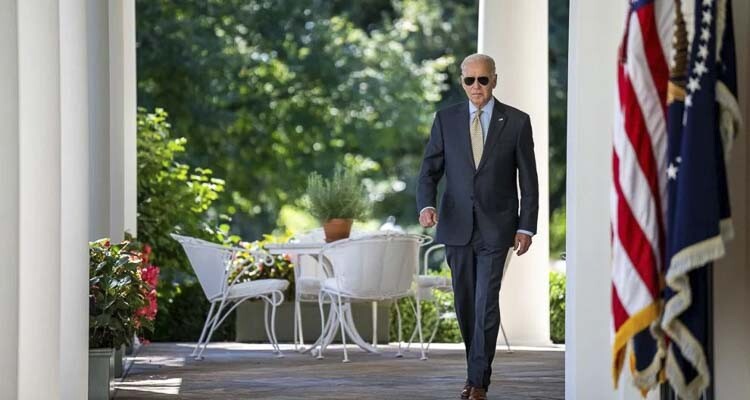
Hubs will be built in 16 states, including Washington and Oregon
Christen Smith
The Center Square
The Biden administration cut a $7 billion check on Friday to launch its vision for a hydrogen-fueled future.
The money augments $40 billion in private investment to build seven hydrogen hubs across the nation that will decarbonize transportation and industrial manufacturing, slashing 25 million metric tons of carbon dioxide emissions each year.
The amount “roughly” equates to removing 5.5 million gasoline-powered vehicles from the road, or just under 2% of the estimated 286 million operational cars in the United States.
After calling climate change “the only existential threat to humanity” during a news conference in Philadelphia, President Joe Biden touted federal infrastructure spending as the key to reigning in greenhouse gas emissions and transitioning away from fossil fuel reliance.
“Today’s announcement is all part of a bigger vision to do just that,” he said.
The hubs expand across seven regions and 16 states, including Pennsylvania, Ohio, West Virginia, New Jersey, Delaware, California, Texas, Minnesota, North Dakota, South Dakota, Illinois, Indiana, Michigan, Washington, Oregon, and Montana.
Together, the network of pipelines, storage facilities and refueling stations will use natural gas to produce energy and capture the resulting carbon emissions underground, creating 3 million metric tons of hydrogen annually – or about 30% of the federal government’s “clean hydrogen” goal for 2030.
“I found that when the government invests in the needs of the American people, guess what? The private sector jumps on real quick,” Biden said.
Hydrogen can be produced in three ways – referred to as gray, blue or green. Gray hydrogen is produced with natural gas and steam; blue is produced the same way, but its carbon gets captured and stored underground; and green is produced with renewable energy, such as wind or nuclear.
Critics say the greenhouse gas footprint of blue hydrogen outweighs any benefit over burning natural gas, while green – although promising – is too expensive and technical to produce at scale.
Others warn that relying on federal subsidies may waste taxpayer money, especially since the promised benefits of carbon capture, in particular, haven’t panned out.
Despite this, the administration said two-thirds of the projects will work with green hydrogen, in some capacity, and has publicized a four-year timeline to complete construction on the hubs.
This report was first published by The Center Square.
Also read:
- Veteran educator Lorri Sibley announces campaign for Battle Ground School BoardVeteran educator Lorri Sibley has launched a campaign for the Battle Ground School Board after 32 years teaching in the district and 36 years as a Yacolt resident.
- Clark County Fire District 3 hiring firefighters and paramedicsClark County Fire District 3 is accepting applications for firefighter and paramedic positions through August 15, with hiring planned by October.
- Red Cross issues advice to stay safe during extreme heatThe Red Cross urges Clark County residents to stay cool, hydrated and connected as extreme heat hits the region, with tips to prevent serious illness.
- Vancouver’s Rental Registration Program to improve quality, safety of rental housingVancouver will require all long-term rental units to register annually starting January 2026, aiming to improve rental safety and housing data.
- Opinion: Taxes and assessed valuesDick Rylander explains how property tax proposals are calculated and urges Clark County residents to understand assessed values before voting on new taxes.
- Junior Market’s entrepreneur of the year recognized by Greater Vancouver Chamber and OnPoint Community Credit UnionWallace Griffin, 11, earned top honors at the Junior Market for his Lemonade Lab, taking home awards and recognition for creativity, profits, and community giving.
- Opinion: Why has Vancouver hired a shelter provider with a record of failure?Amy Harris questions Vancouver’s decision to hire Do Good Multnomah, citing documented failures and urging city officials to explain their choice.











